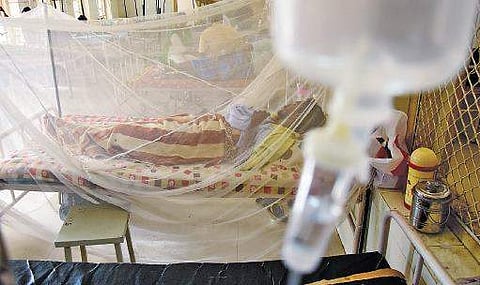

BENGALURU: While the H3N2 virus is already dominant in Karnataka, Covid and H1N1 (swine flu) cases are also seeing a slow rise in the state. Lately, the active Covid cases have crossed the 500 mark in the state.
Dr MK Sudarshan, Technical Advisory Committee (TAC) chairman, said the a high number of H3N2 cases have been observed in the past few weeks. He added that the number of H1N1 cases have also seen a rise. According to data collected by the Union Health Ministry, the neighbouring states of Tamil Nadu and Kerala are also seeing a high prevalence of the virus. Sudharshan said that with a simultaneous rise in Covid cases, the number of ICU admissions is a matter of concern.
As of March 15, with 119 new Covid cases reported, the total active cases in the state are 560. The weekly test positivity rate (TPR) stood at 2.76%, with one death reported on Tuesday. The deceased is a 71-year-old man from Bengaluru, with symptoms like fever, cough, and breathlessness. He also had other comorbidities like hypertension, diabetes and chronic kidney disease.
Health officials added that most patients being admitted in the ICU have other comorbidities. The
department is, however, being watchful and has assured that the rising cases are not a reason of worry.
Since symptoms for Influenza Like Illness (ILI) and Covid cases are almost similar, the state Health and Family Welfare Department has directed hospitals to investigate all patients showing symptoms for either viruses and study the existence of co-infections.
According to data released by the Union Health Ministry on March 13, Karnataka has seen 4,700 H1N1 cases from 2018 till March 2023, and 201 have been declared dead till now. Doctors said a change in the weather has been the primary cause for the rise in ILI/SARI cases.